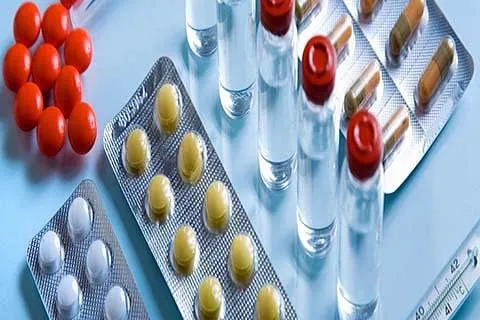CDC links India-made eye drops to the outbreak of rare strain in the US. Three dead, several are infected. The organism appears to have spread via a contaminated point source; it led to severe infections in the US and violated several safety norms, the country’s top regulator has said.
70 children in Gambia died after four contaminated syrups manufactured by Haryana-based pharma.
18 children in Uzbekistan died from another syrup made by Noida based firm.
The disturbing reports of families losing loved ones due to the consumption of counterfeit drugs manufactured in India are not only devastating for those directly impacted but also cast a negative light on India’s regulatory standards at a global level. In over one year, three foreign nations have launched investigations into Indian pharmaceutical companies. In contrast, many foreign nationals, including women and children, have reportedly lost their lives due to consumption of drugs manufactured in India. This disturbing news has shaken the industry and tarnished India’s reputation as the “Pharmacy of the world.”
If not effectively curtailed, the proliferation of substandard drug exports from India can damage the country’s global reputation and create a vacuum that competing nations may take advantage of. Recent tragic incidents, such as the deaths of American citizens and reports of bacterial infections in alleged Indian eye drops, as well as the deaths of 66 children in Gambia and Uzbekistan after consuming cough syrup, have placed India’s drug regulatory bodies under intense scrutiny for failing to take necessary precautions. This development also threatens the leading Indian pharmaceutical companies that can rival any top global pharmaceutical manufacturing unit.
These are not isolated incidents. Two years prior, 17 children died in Jammu and Kashmir after consuming syrup produced by a HP company that was found to contain high levels of diethylene glycol. In 2016, two Indian pharmaceutical companies were charged for illegally exporting counterfeit diabetes drugs. In 2013, a company pleaded guilty to felony charges over the manufacture and distribution of adulterated drugs, agreeing to pay a $500 million settlement. Most recently, the sale of fake vials of remdesivir, an antiviral drug used to treat COVID-19, has further questioned India’s regulatory framework for drugs.
These incidents have brought significant attention to the Drugs and Cosmetics Act that governs drug regulation in India. Public health activist and former pharma executive Dinesh Thakur told the German news Agency that the law and subsequent changes are insufficient in regulating the complexities of the Indian market, which is a union of states. Without significant changes, India risks tarnishing its reputation further and losing its position as a trusted pharmaceutical manufacturer on the global stage.
In several cases, the World Health Organization (WHO) issued a medical product alert asking regulators to remove products made by a particular pharmaceutical manufacturer from the market.
The NITI Ayog has said that Indian drug regulatory standards should be on par with global standards. It has also recommended that medical devices be overseen by an independent authority, not the Drugs Controller General of India (DCGI).
The NITI Ayog’s recommendations come during the inter-ministerial consultation on the New Drugs, Medical Devices and Cosmetics Bill, 2023. The draft bill seeks to replace the existing Drugs and Cosmetics Act of 1940. It was put up in the public domain in July last year, seeking feedback from stakeholders. It has been revised and sent for inter-ministerial consultation.
The NITI Ayog’s recommendations also come after strings of incidents abroad questioning the credibility of Indian drugs. The Indian authorities must crack down on these spurious drug companies and take stringent measures against drug makers.
India is the world’s leading vaccine manufacturer and the largest producer of generic drugs. According to reports, over 20% of the global supply of generic medicines already comes from India. The pharmaceutical industry in India is expected to only rise with rising exports. India’s pharmaceutical exports have doubled over the past decade to $24.5 billion in the past fiscal year.
India’s pharmaceutical industry is a leading source of path-breaking innovation, especially when providing life-saving medicines at affordable prices to countries that need them the most. Even during the COVID-19 pandemic, the world continued to depend on Indian vaccine and pharmaceutical manufacturers to get their supply of medications. As per data, India exported around eight crore doses of COVID vaccines to 90 countries by the end of 2022.
Needs high-level monitoring
The need of the hour is for the government to create a new high degree of monitoring committee to save time. Quick research and analysis are needed to identify the gaps and increase the number of fool proof-friendly laboratories for quality testing.
Author is a regular contributor to Greater Kashmir.
Disclaimer: The views and opinions expressed in this article are the personal opinions of the author. The facts, analysis, assumptions and perspective appearing in the article do not reflect the views of GK.







